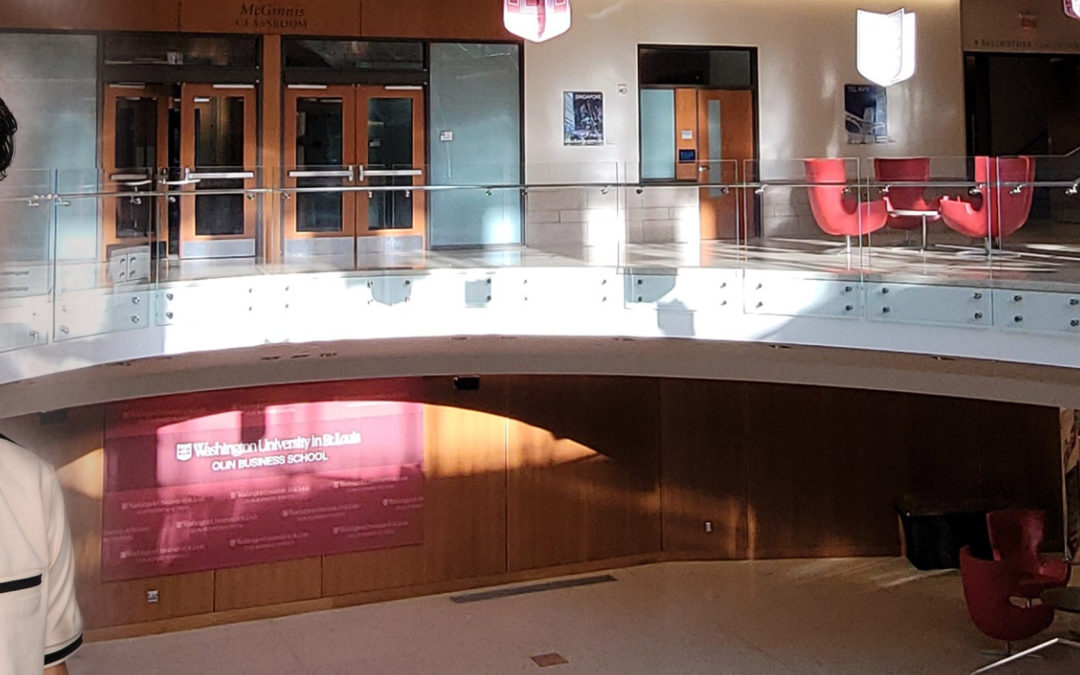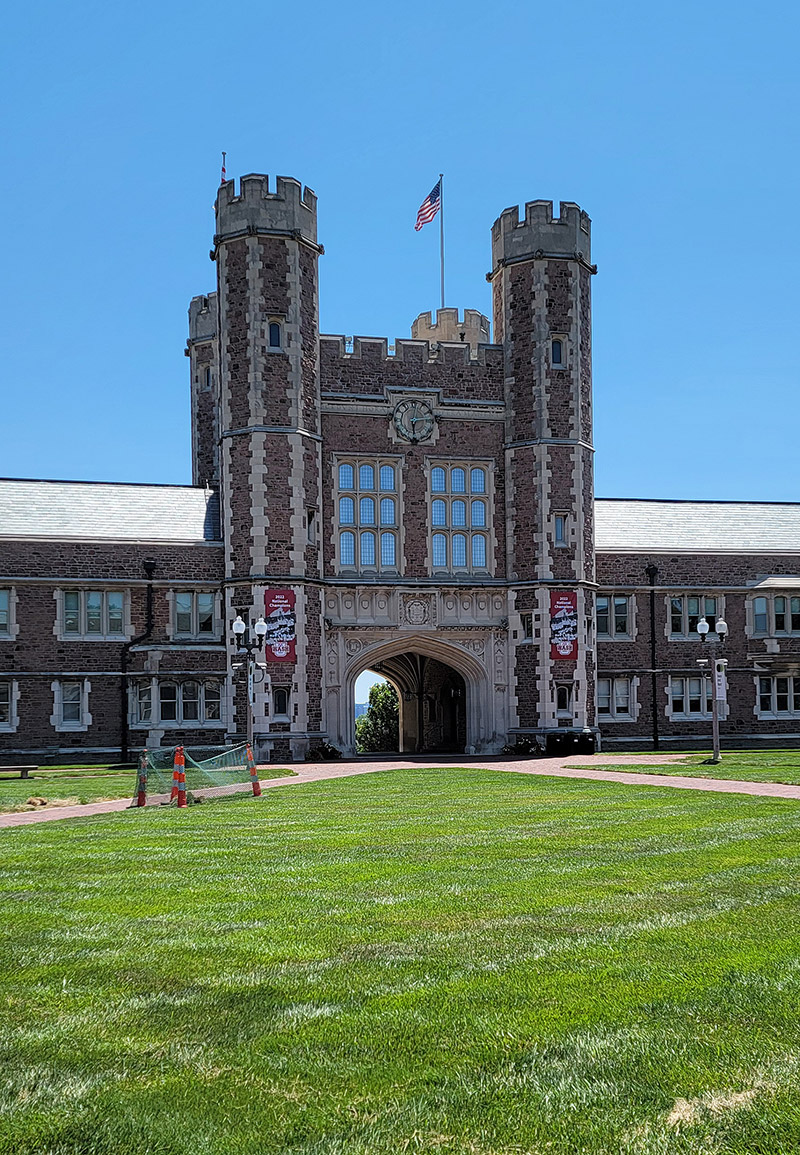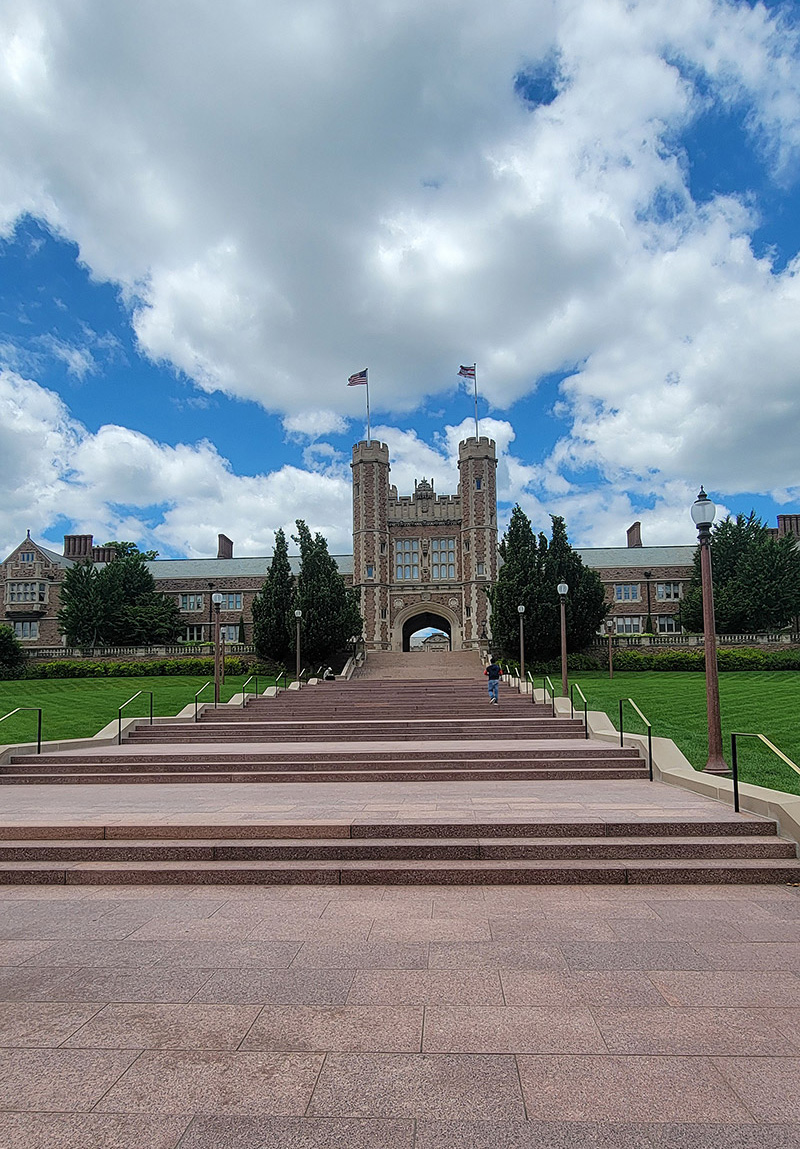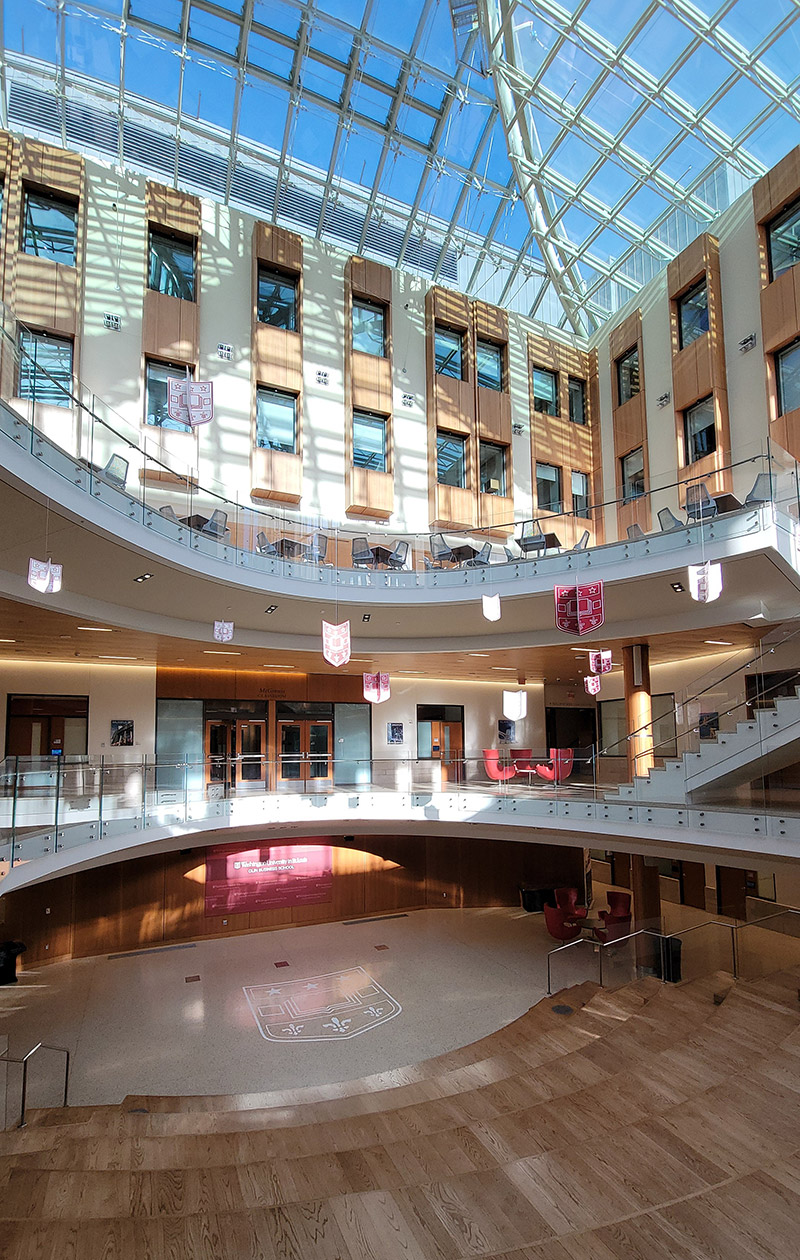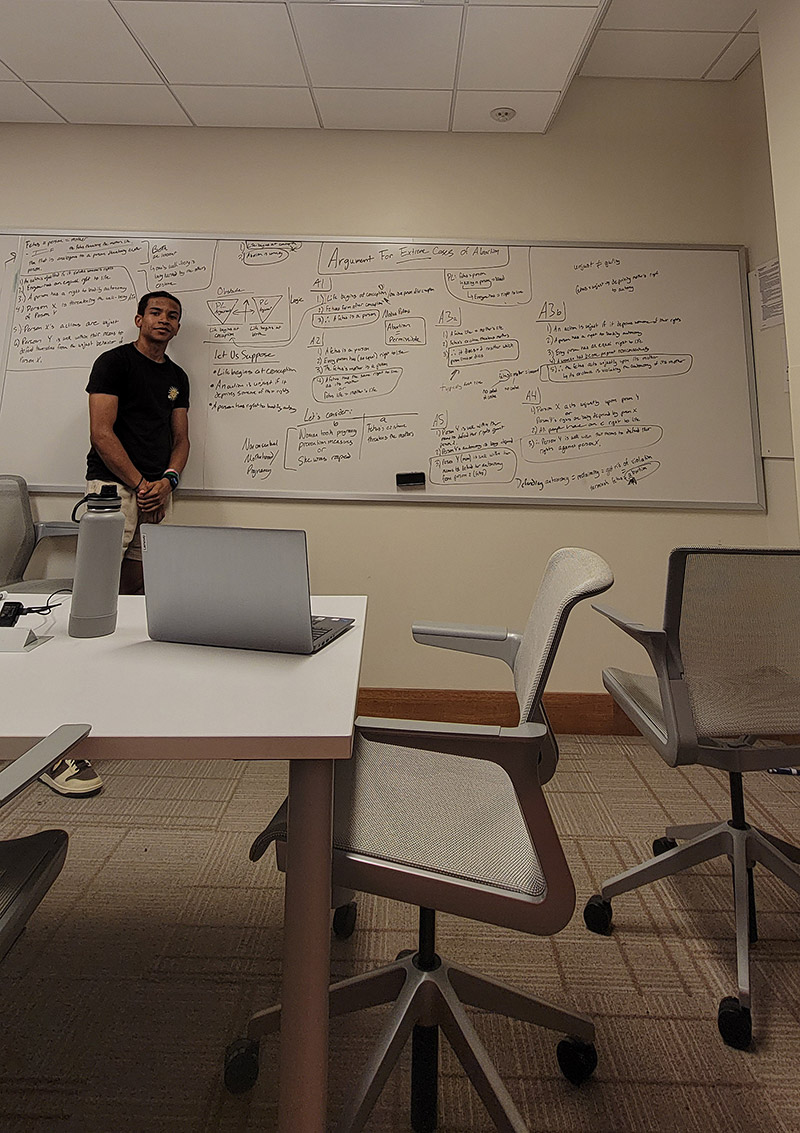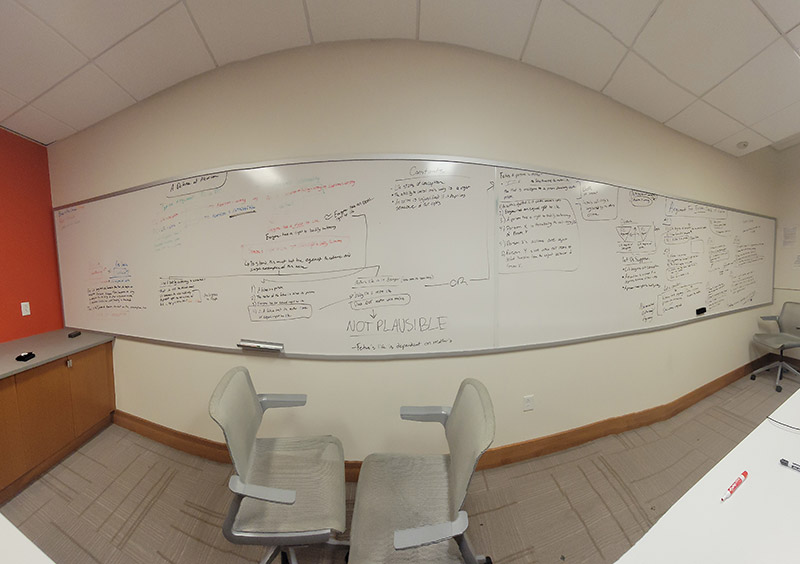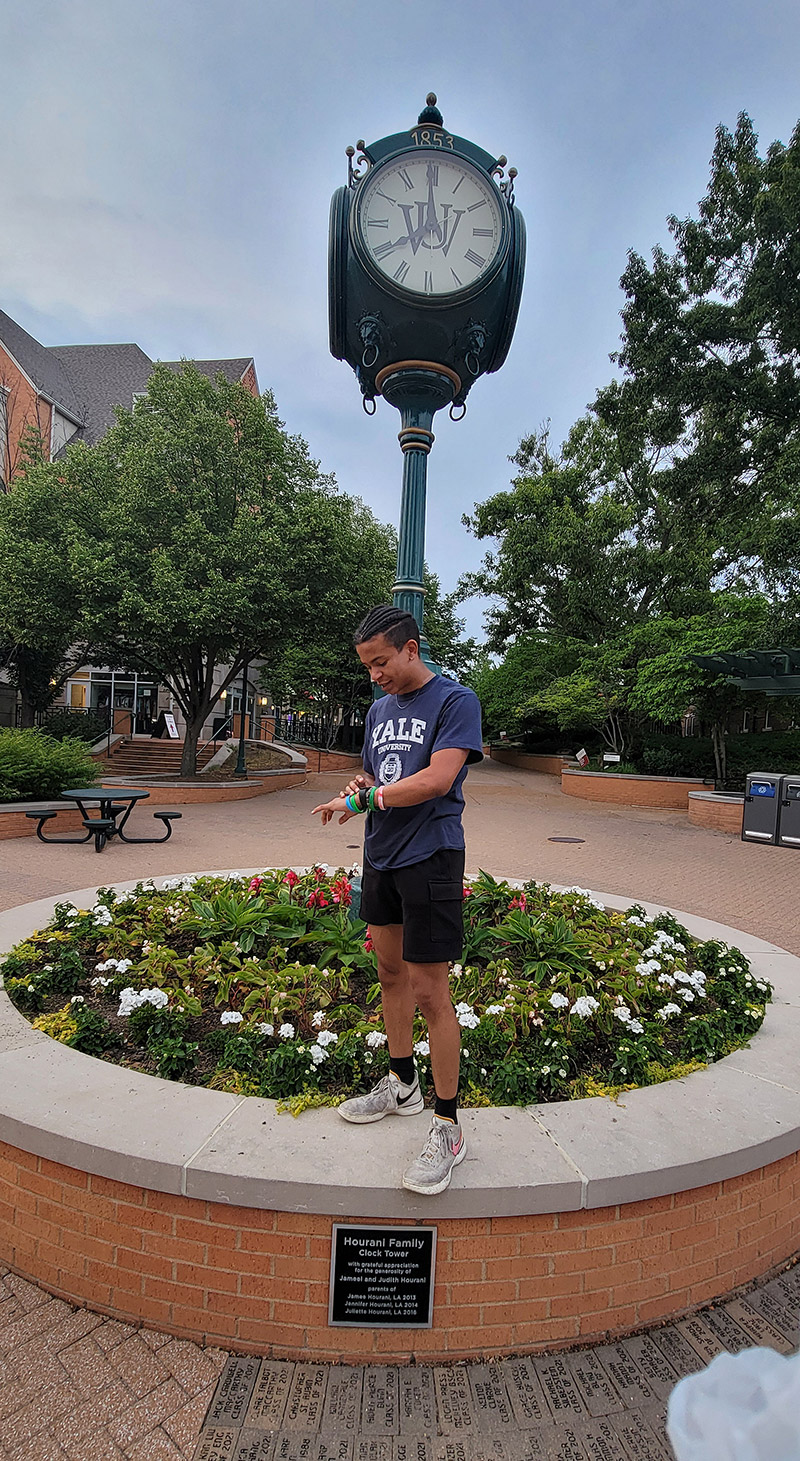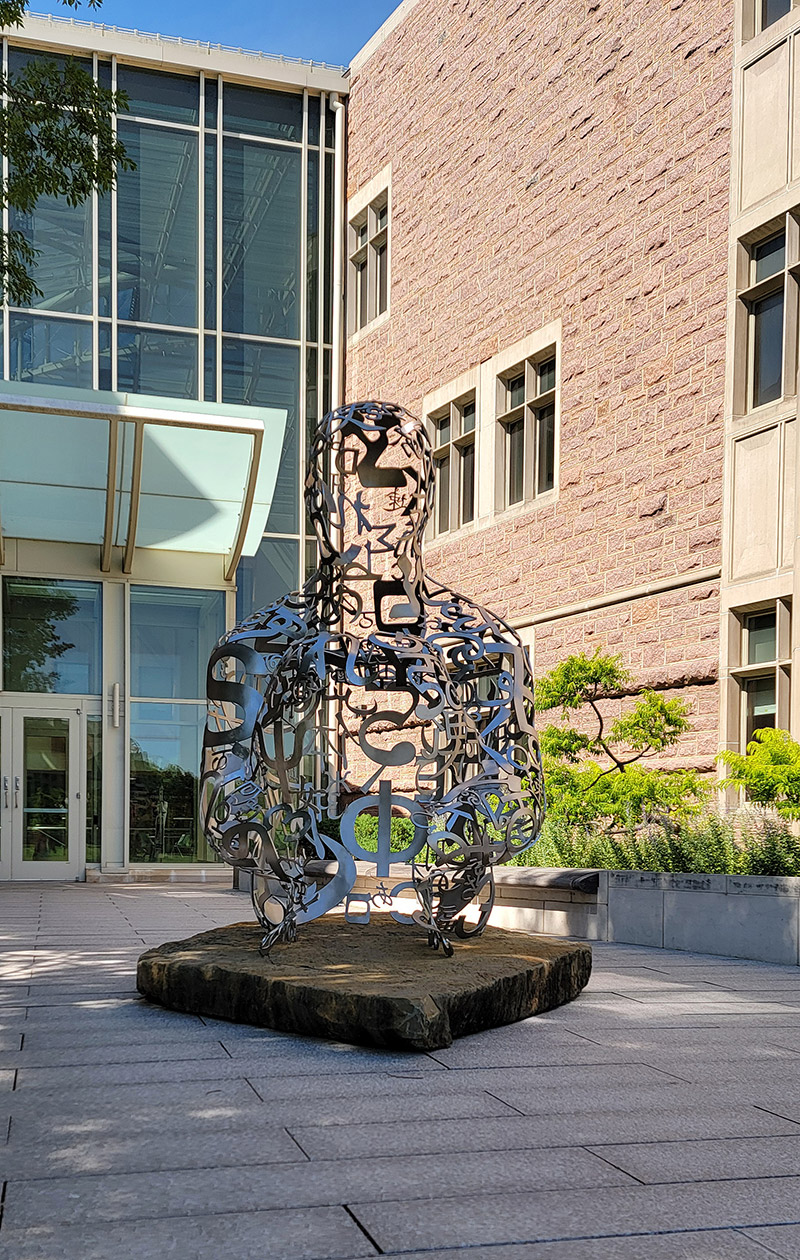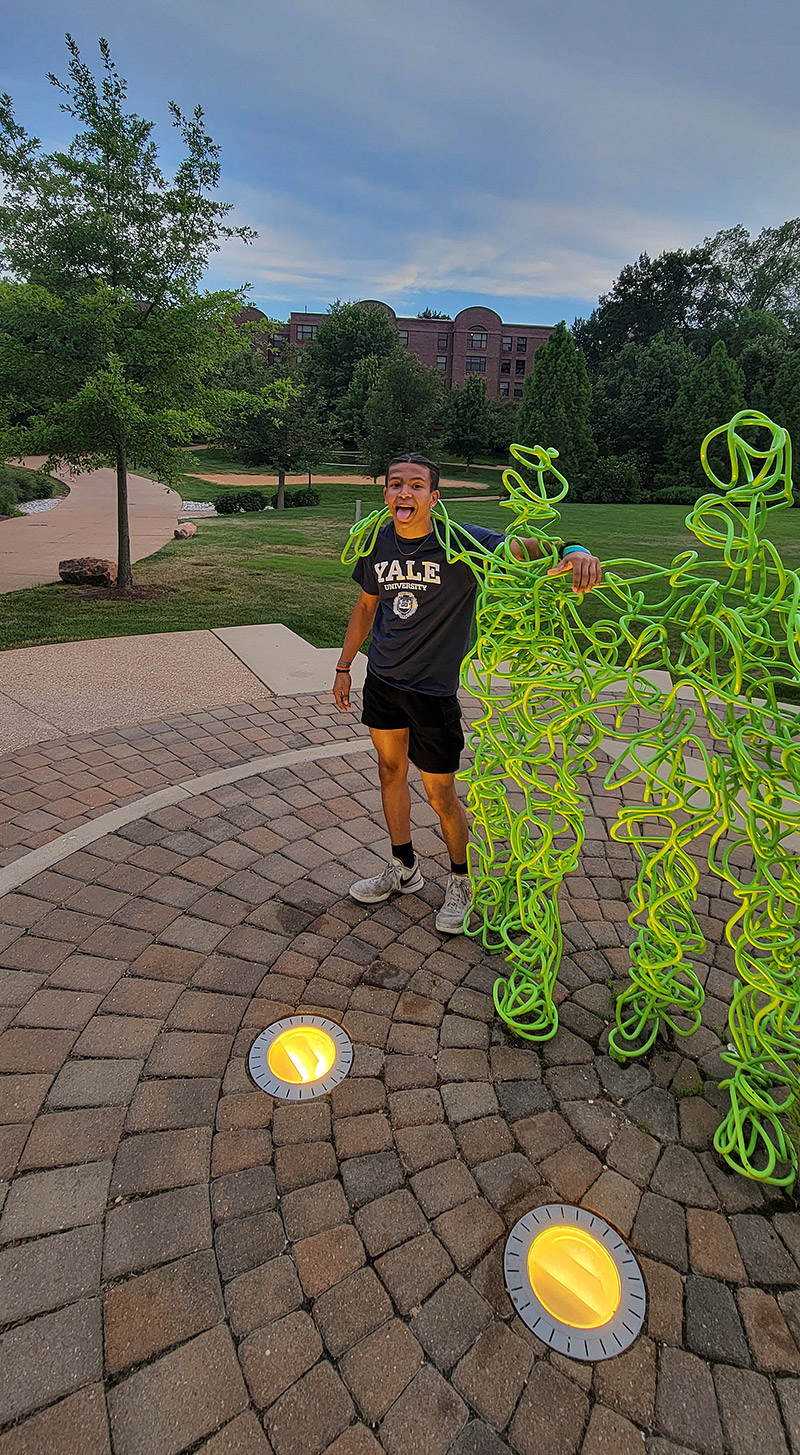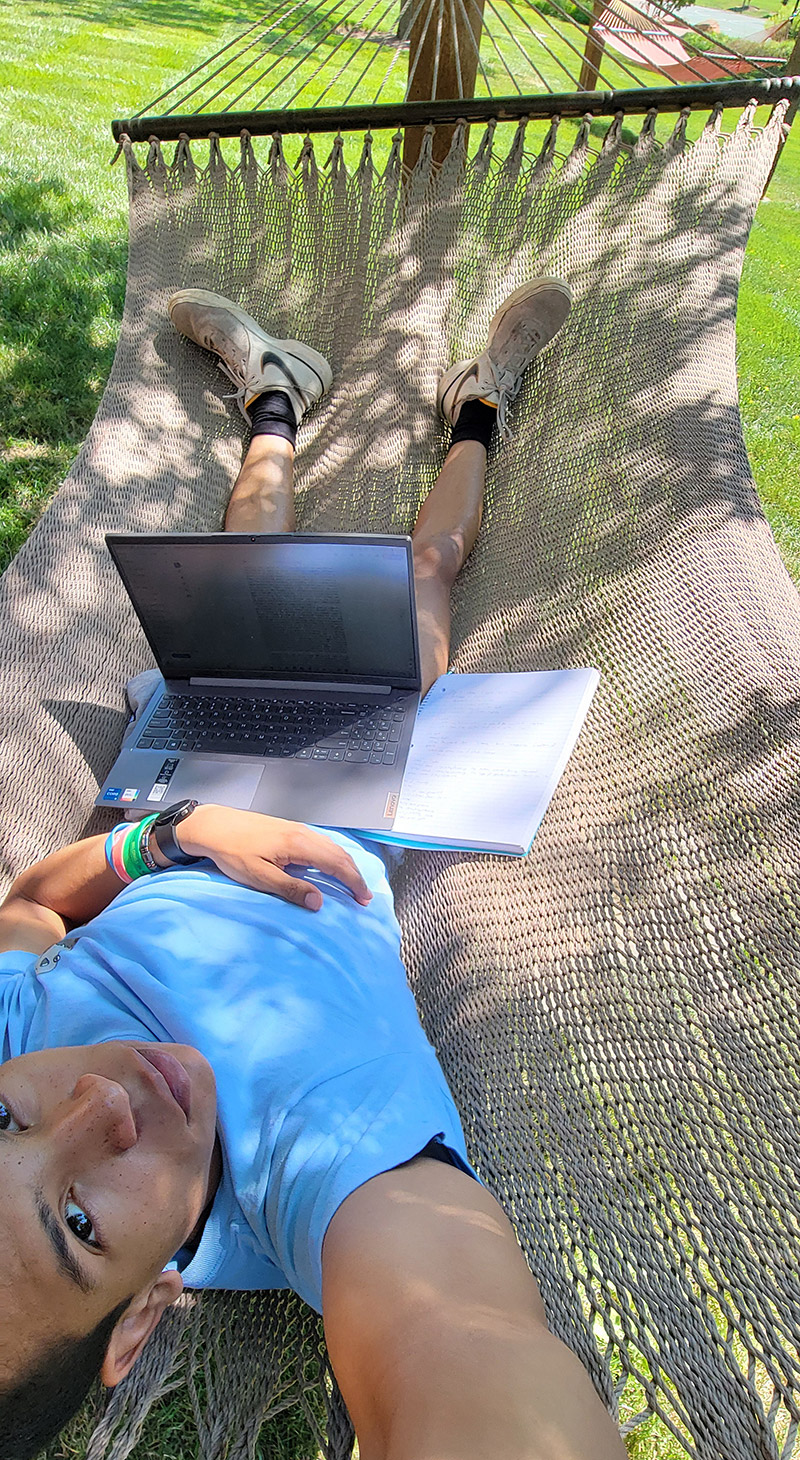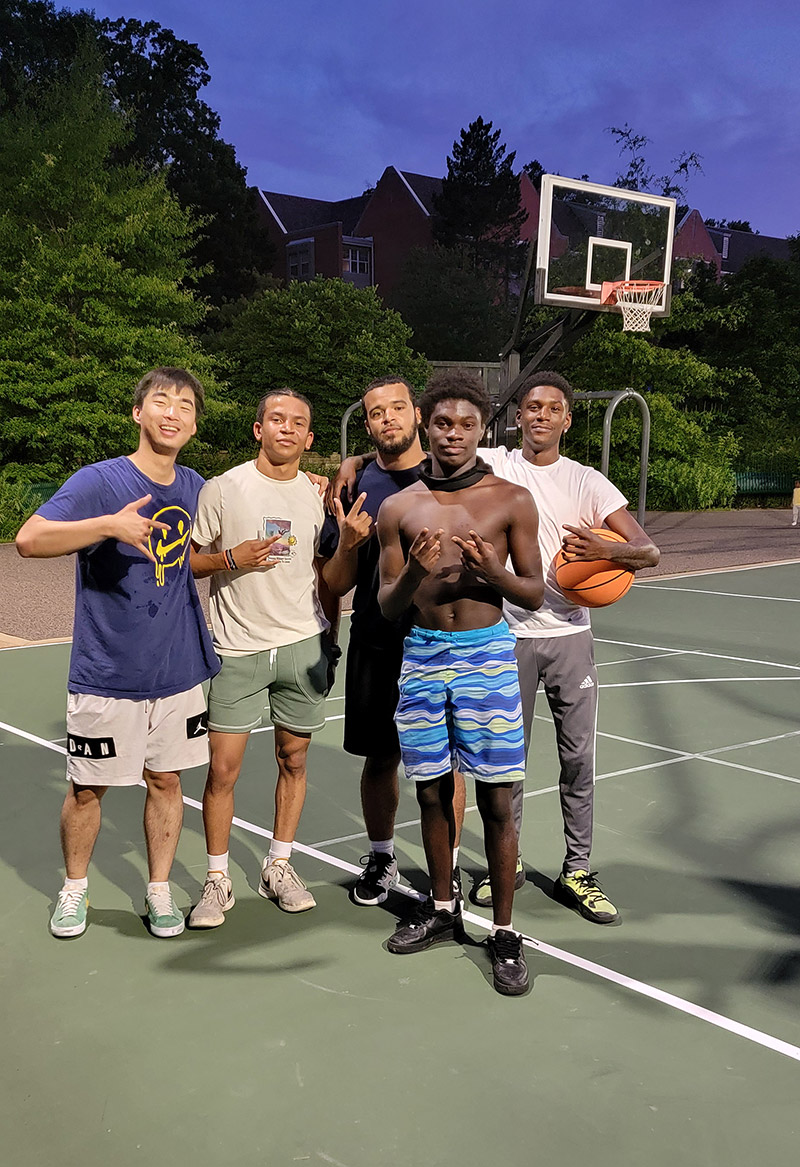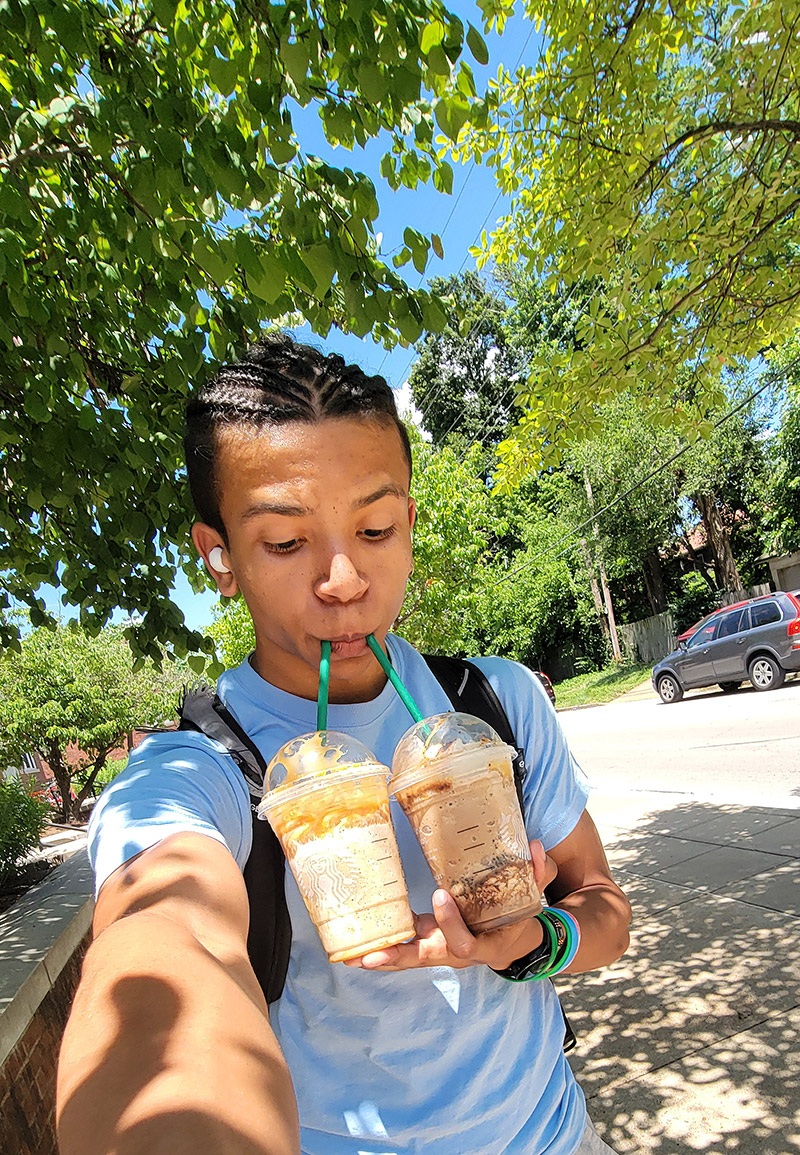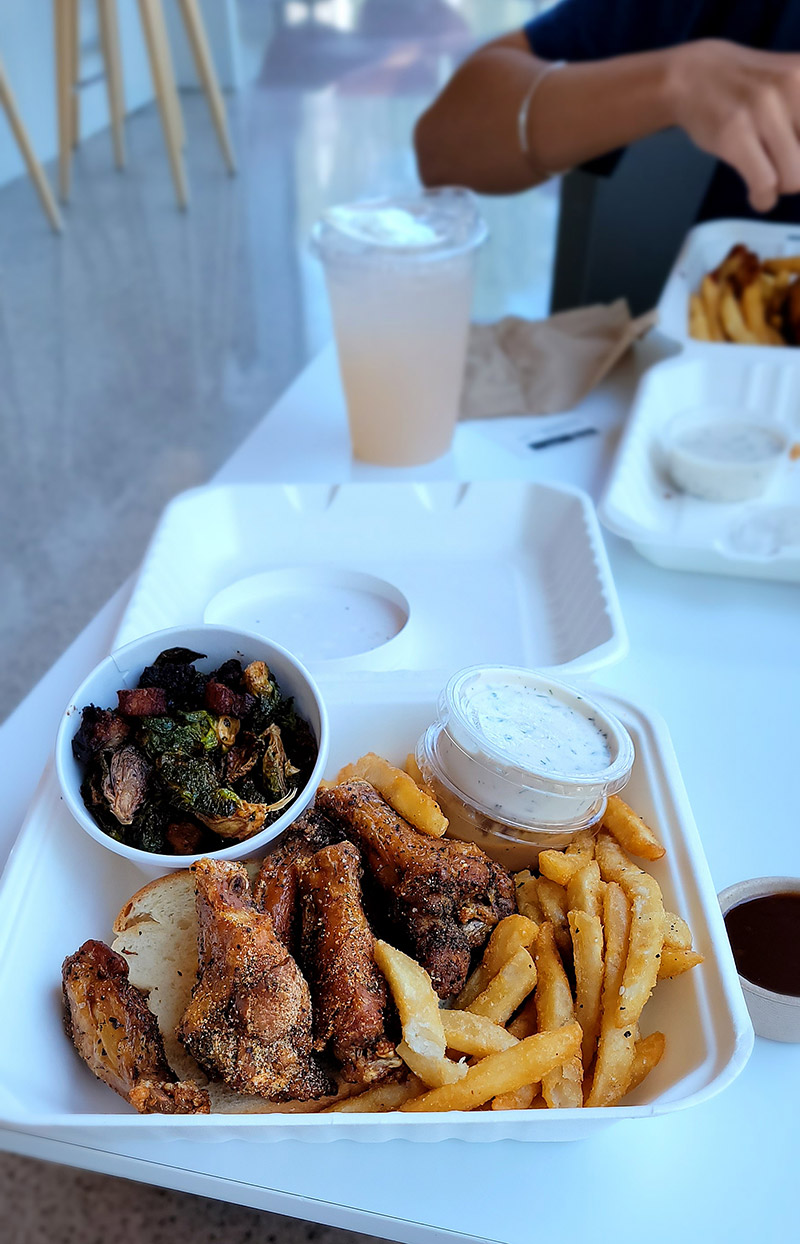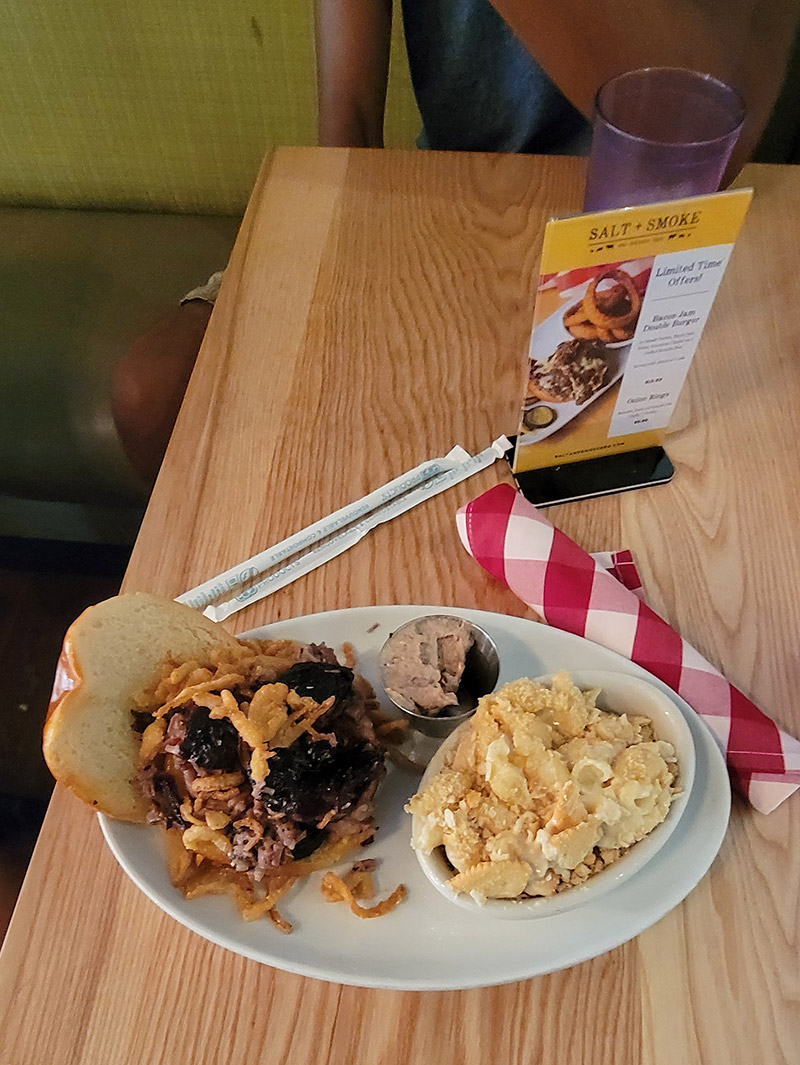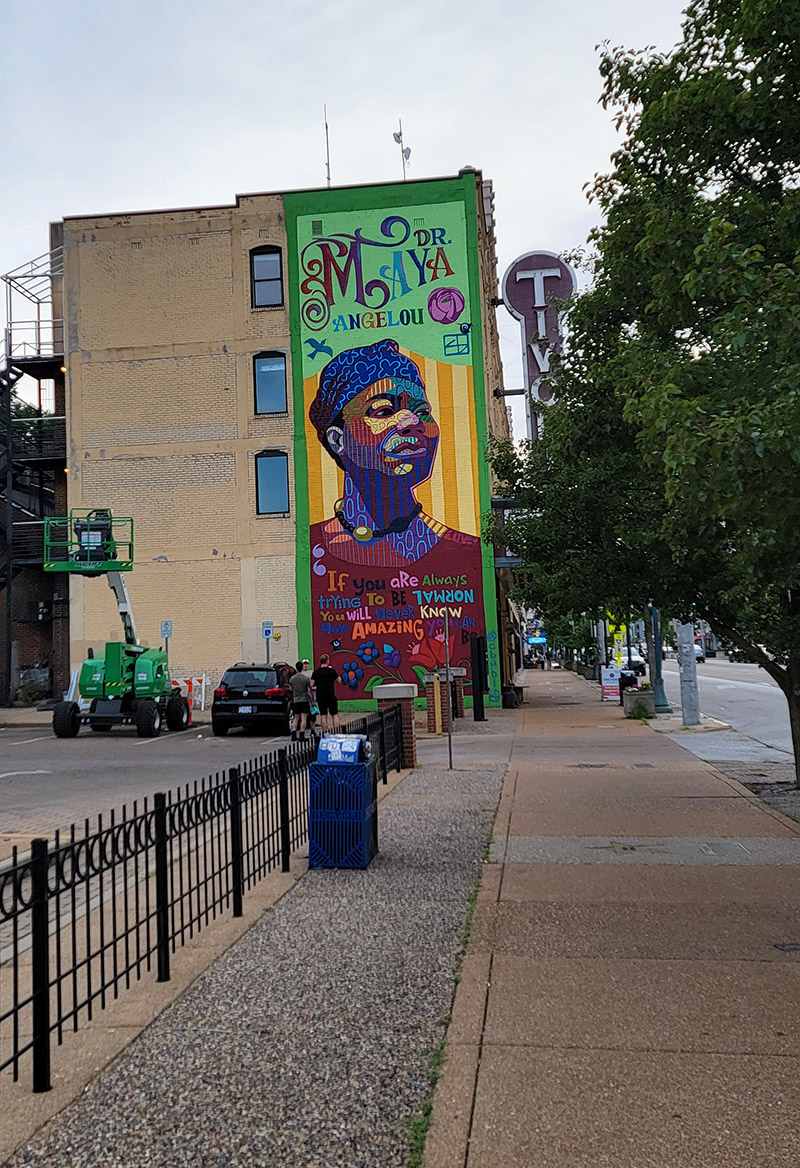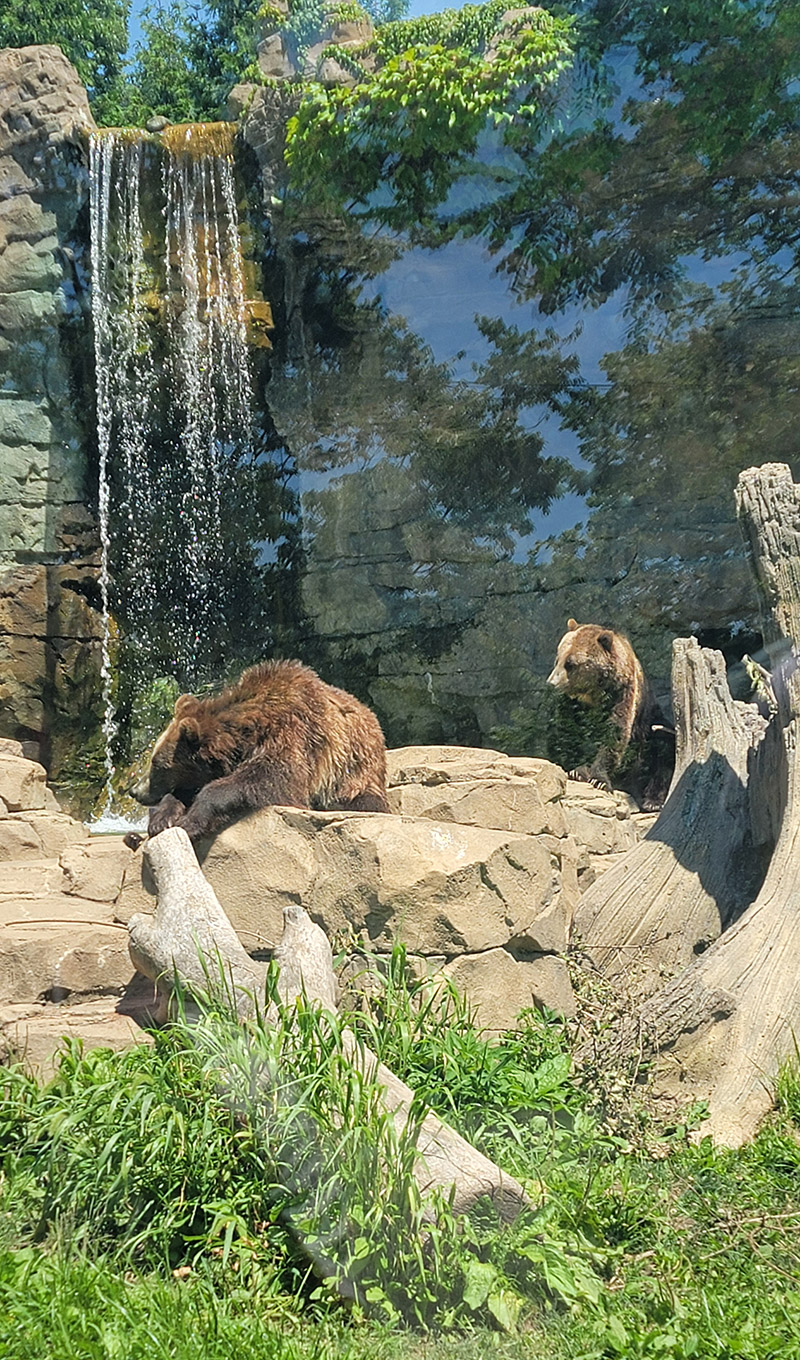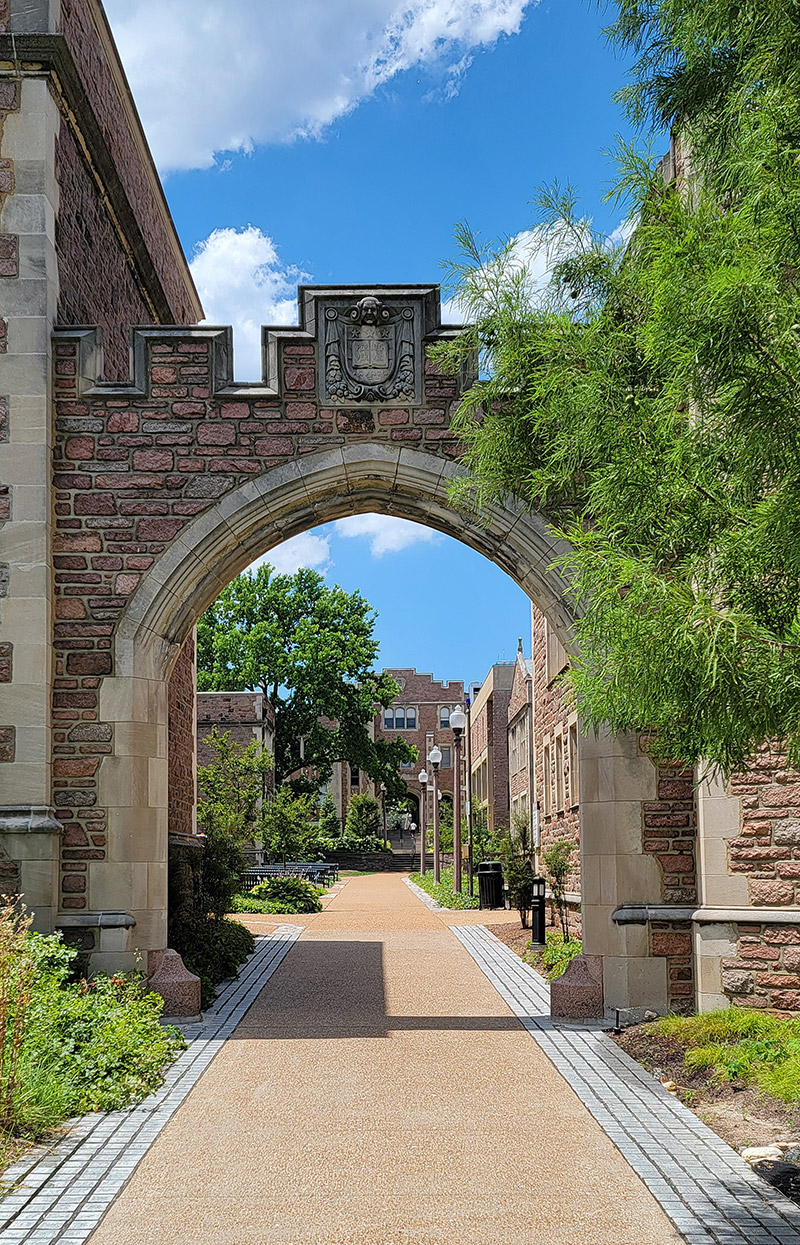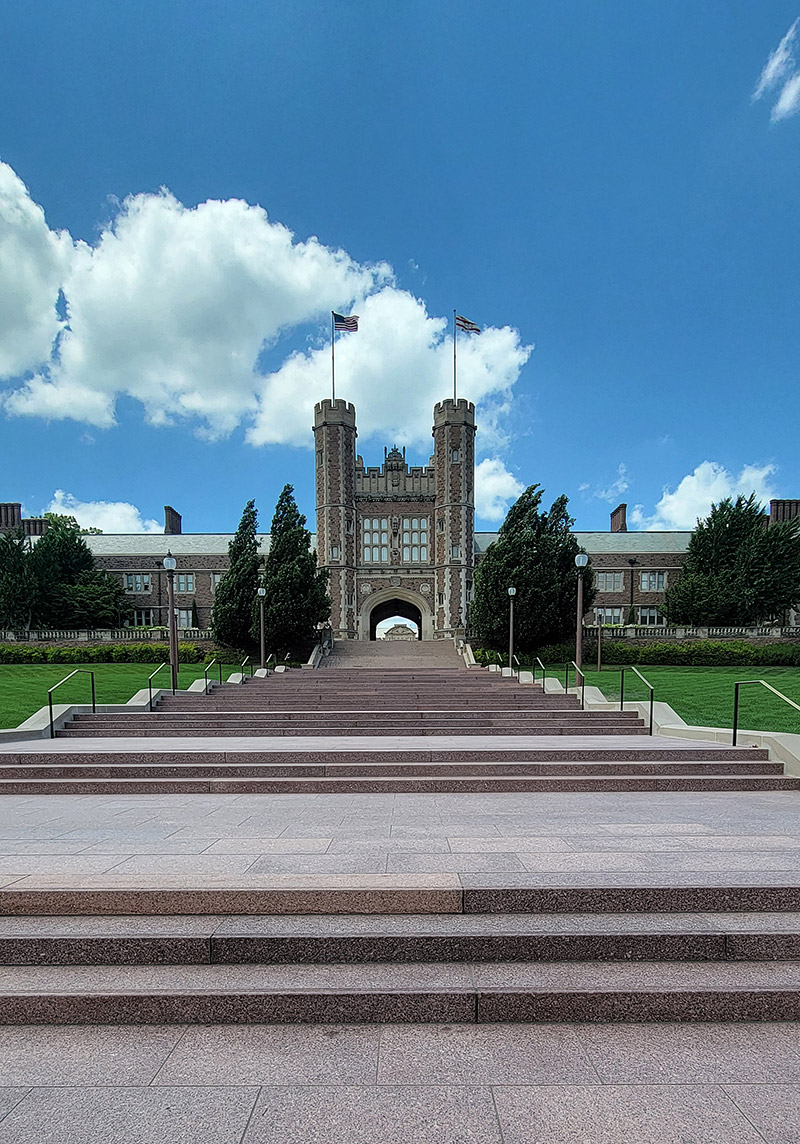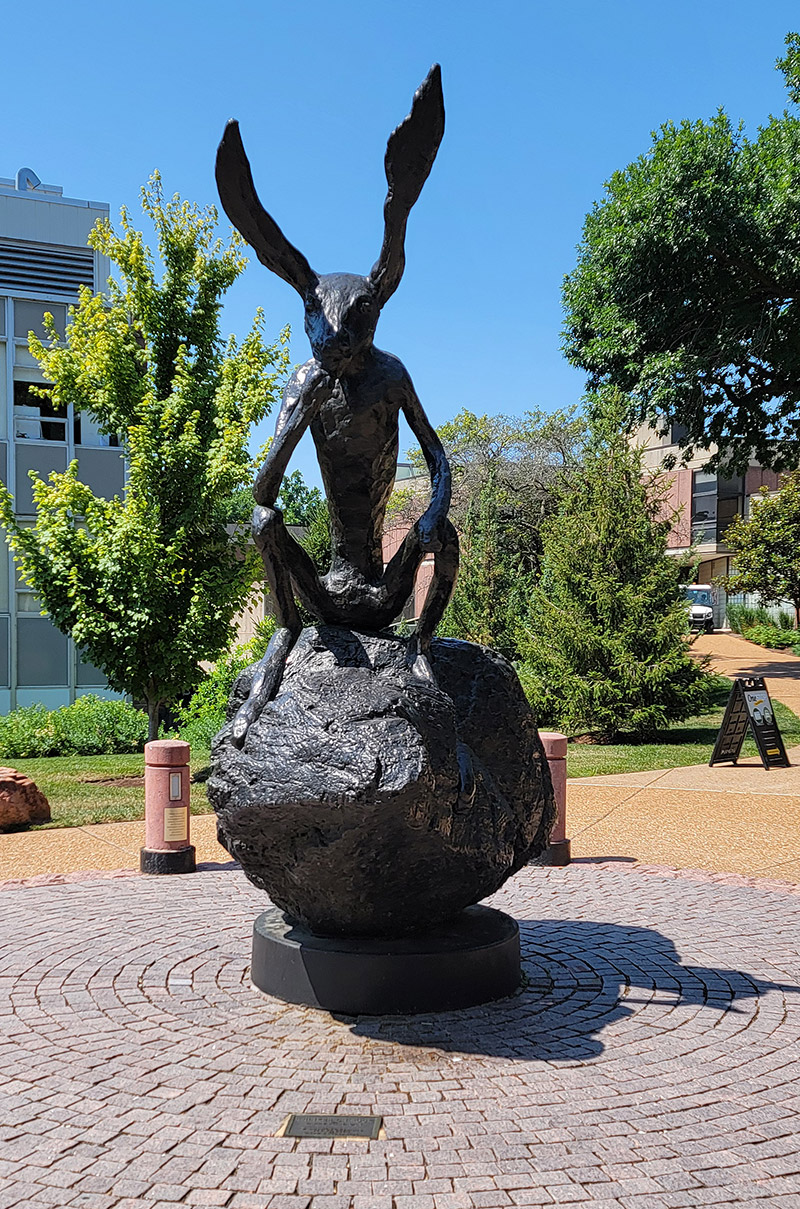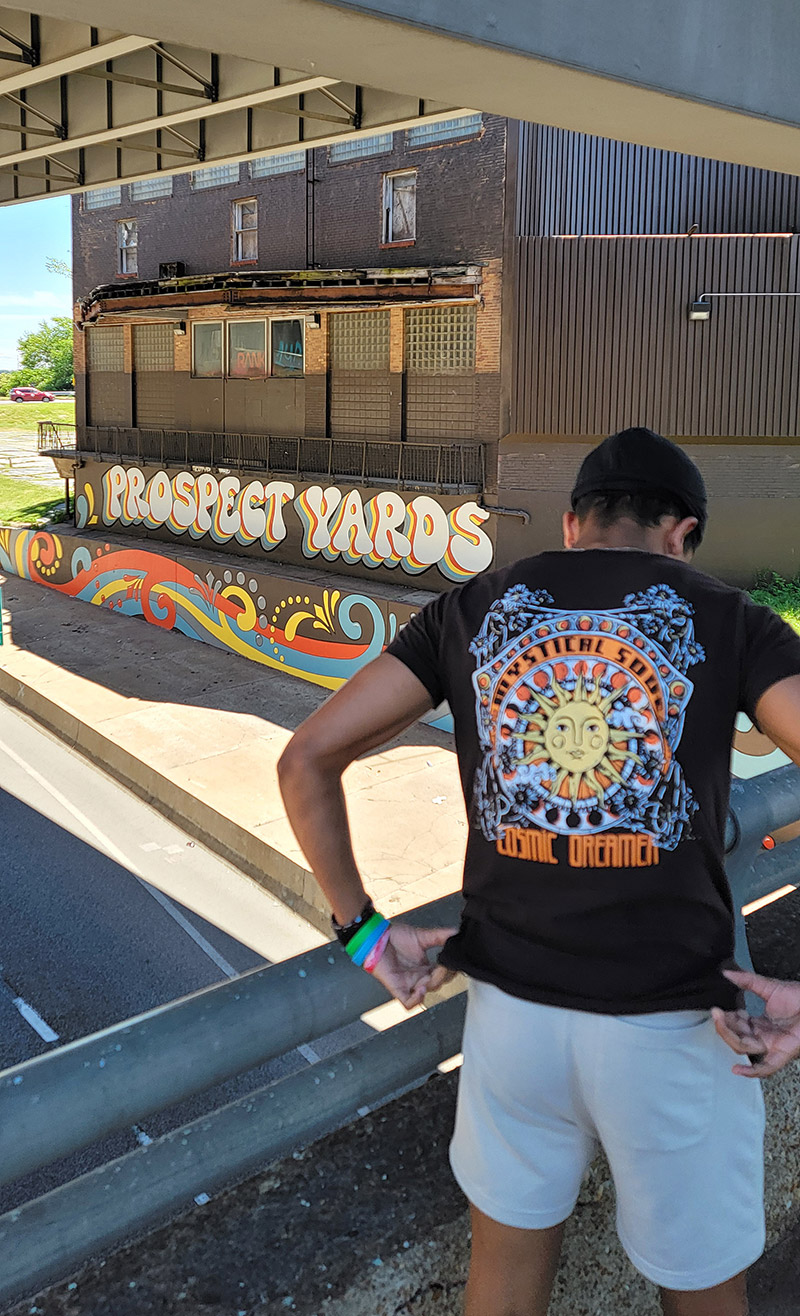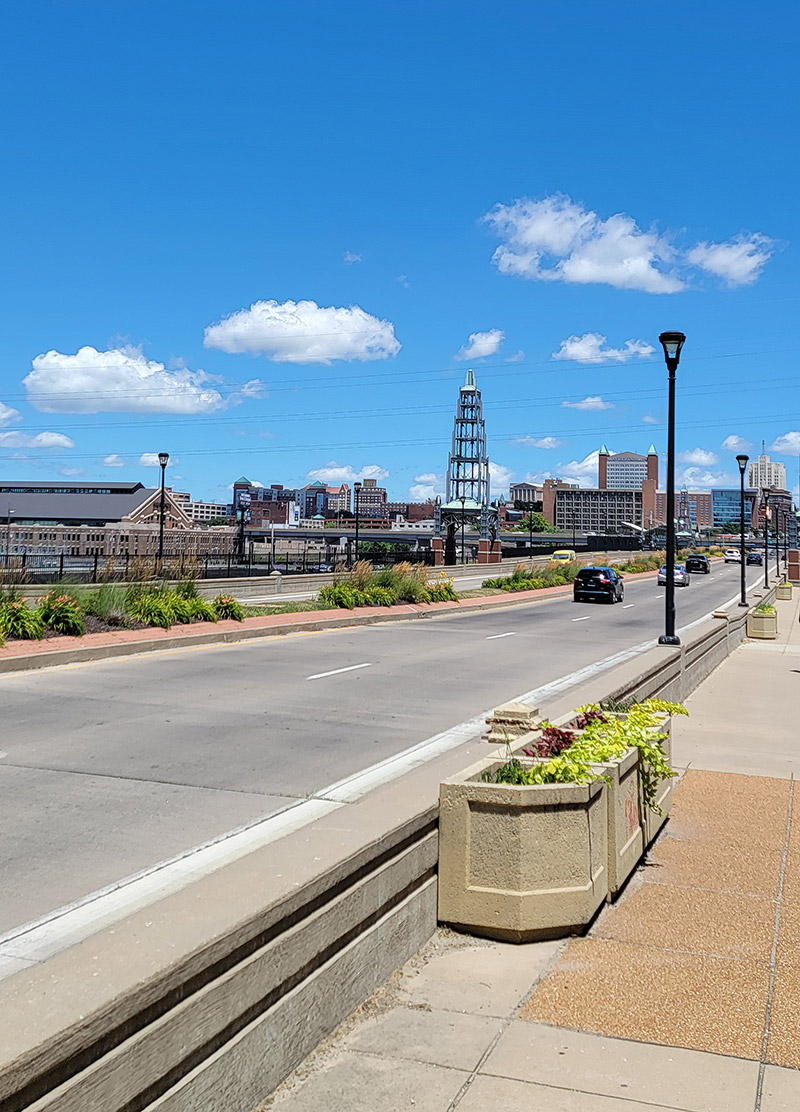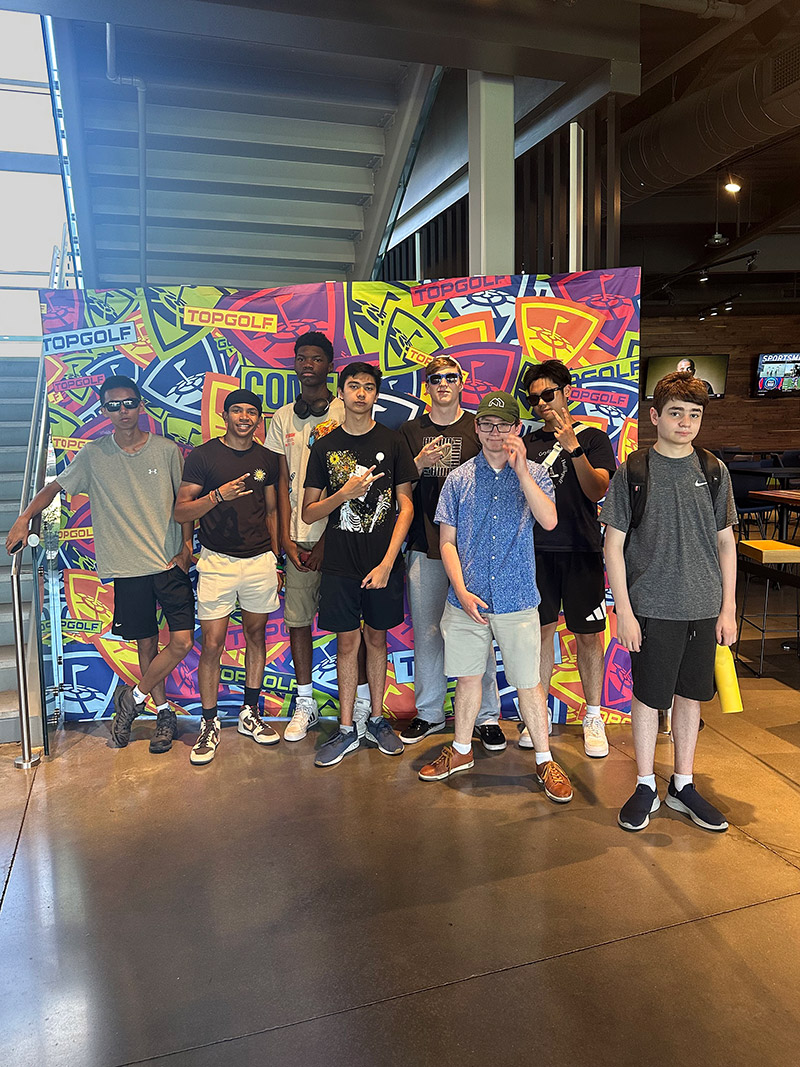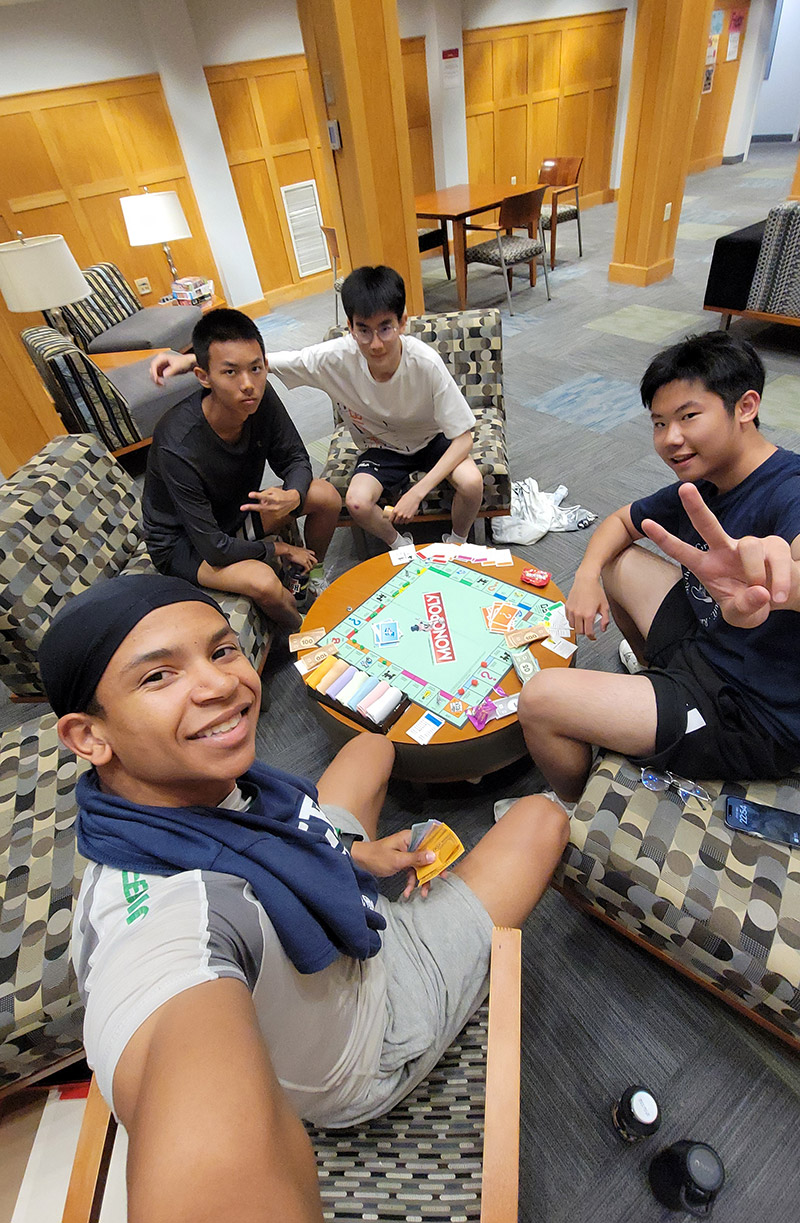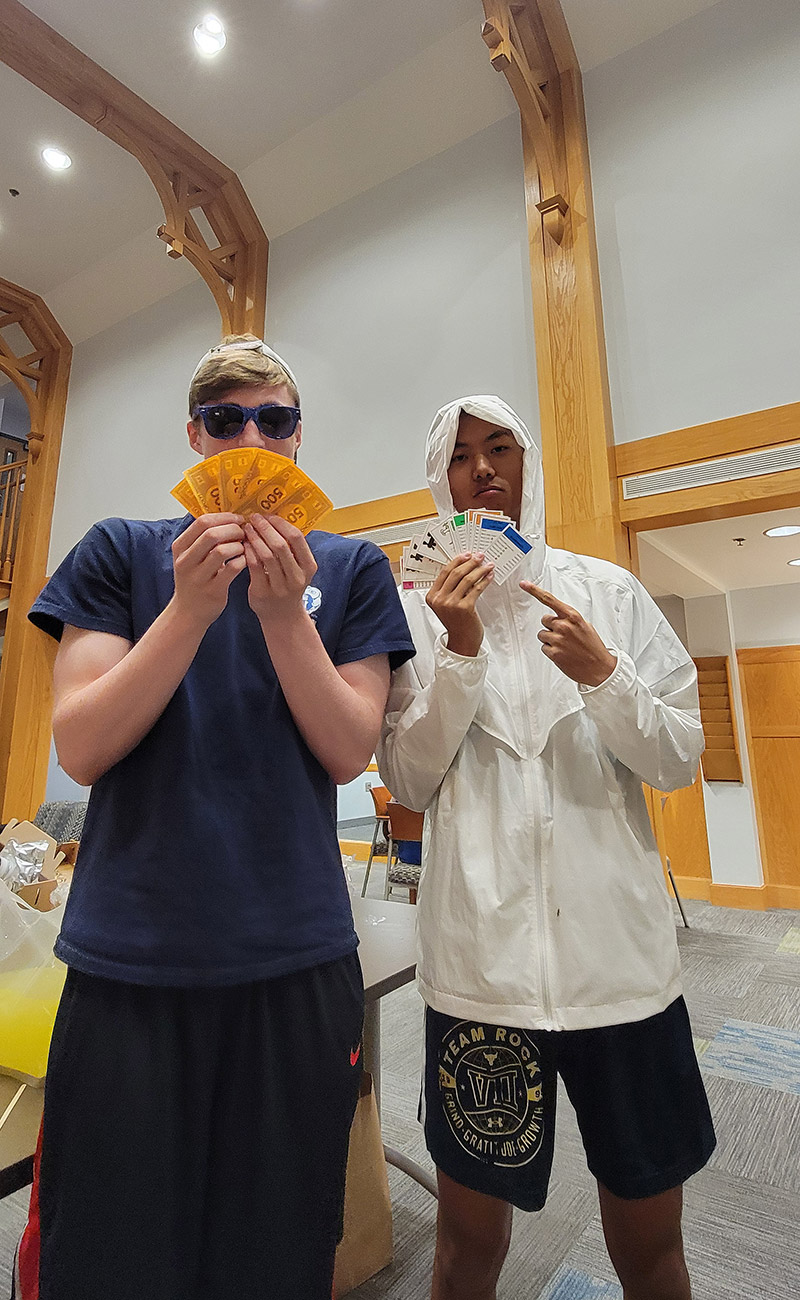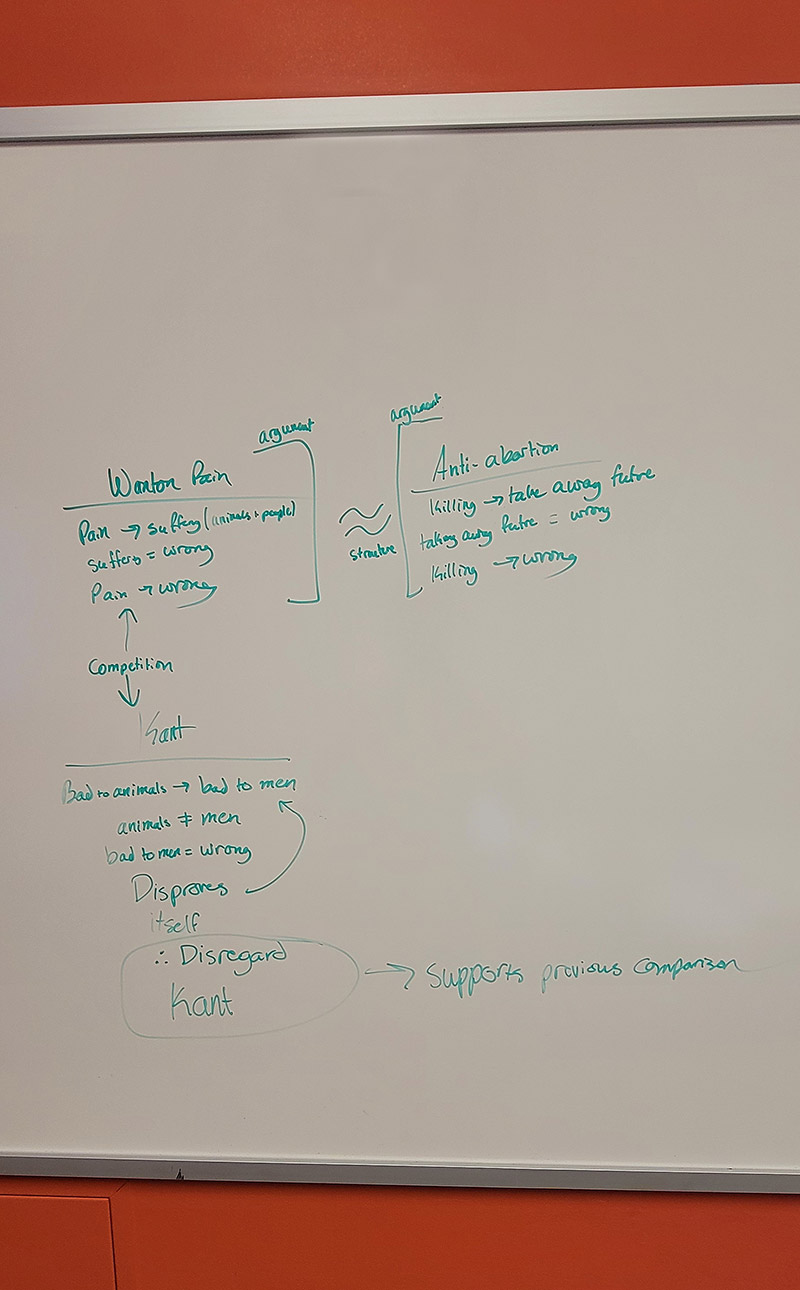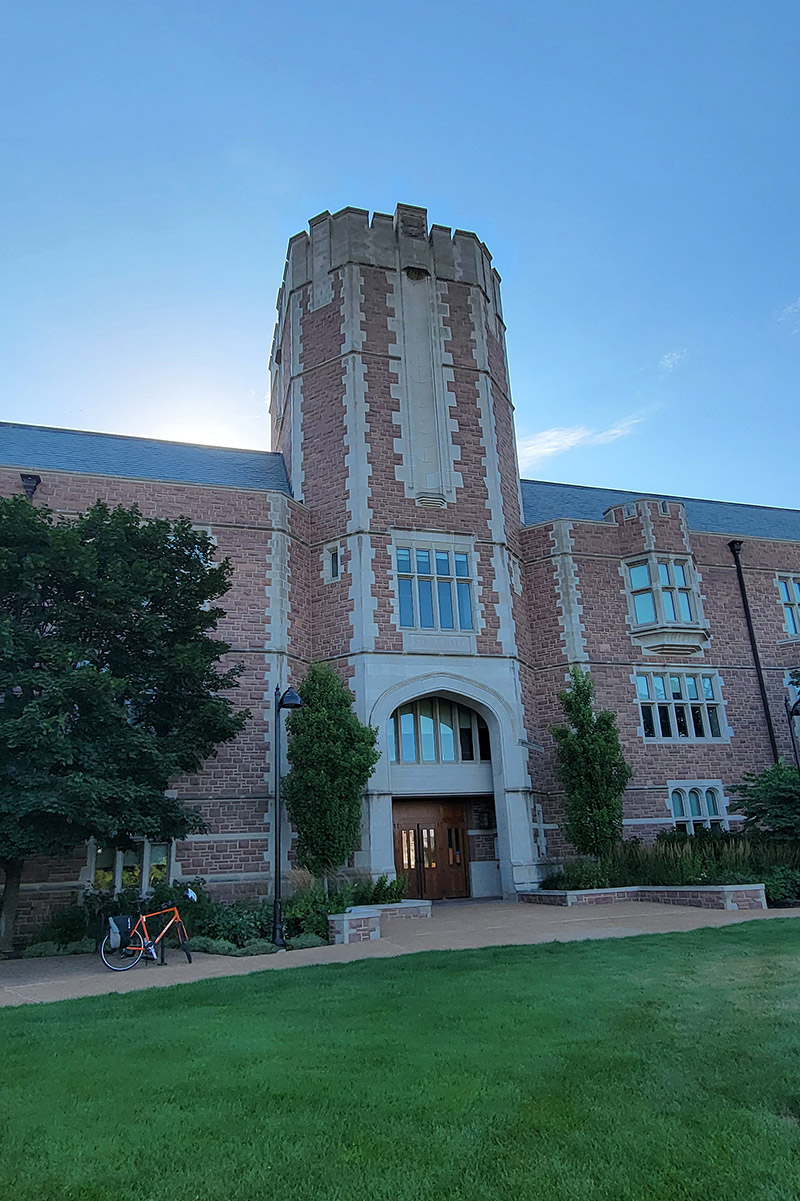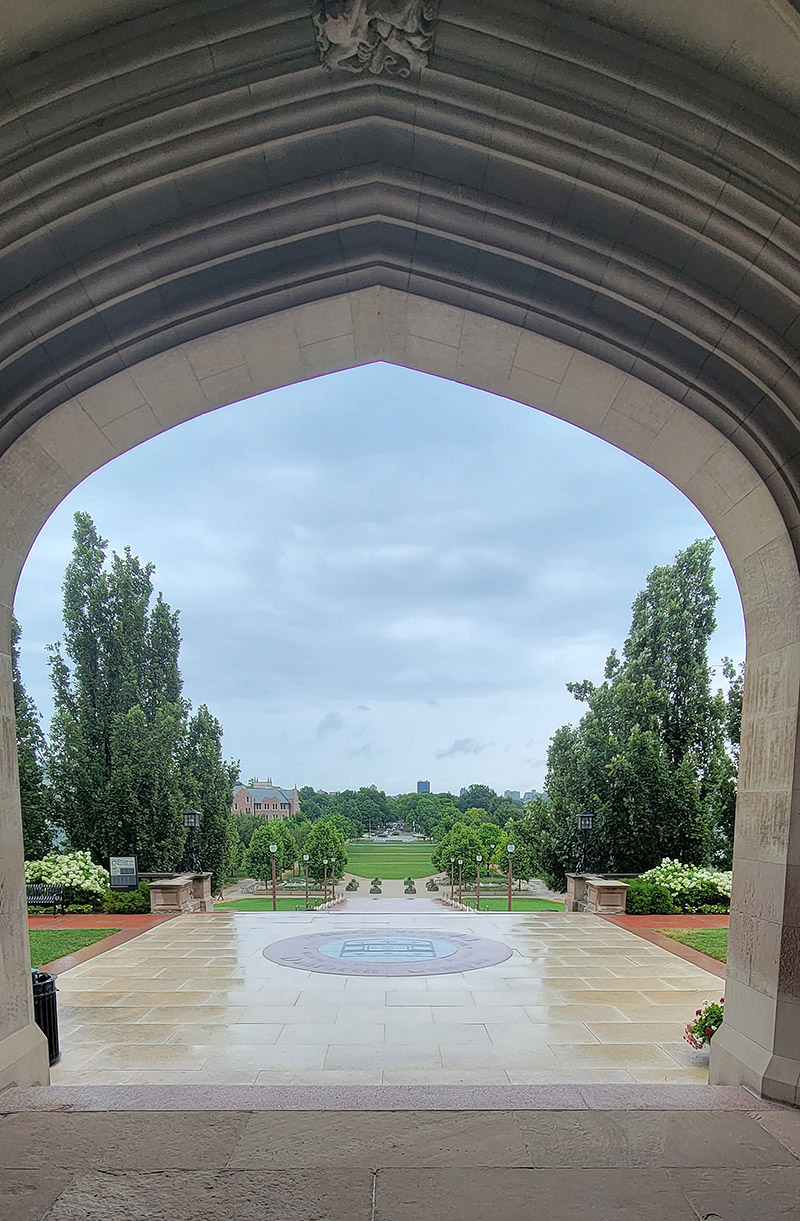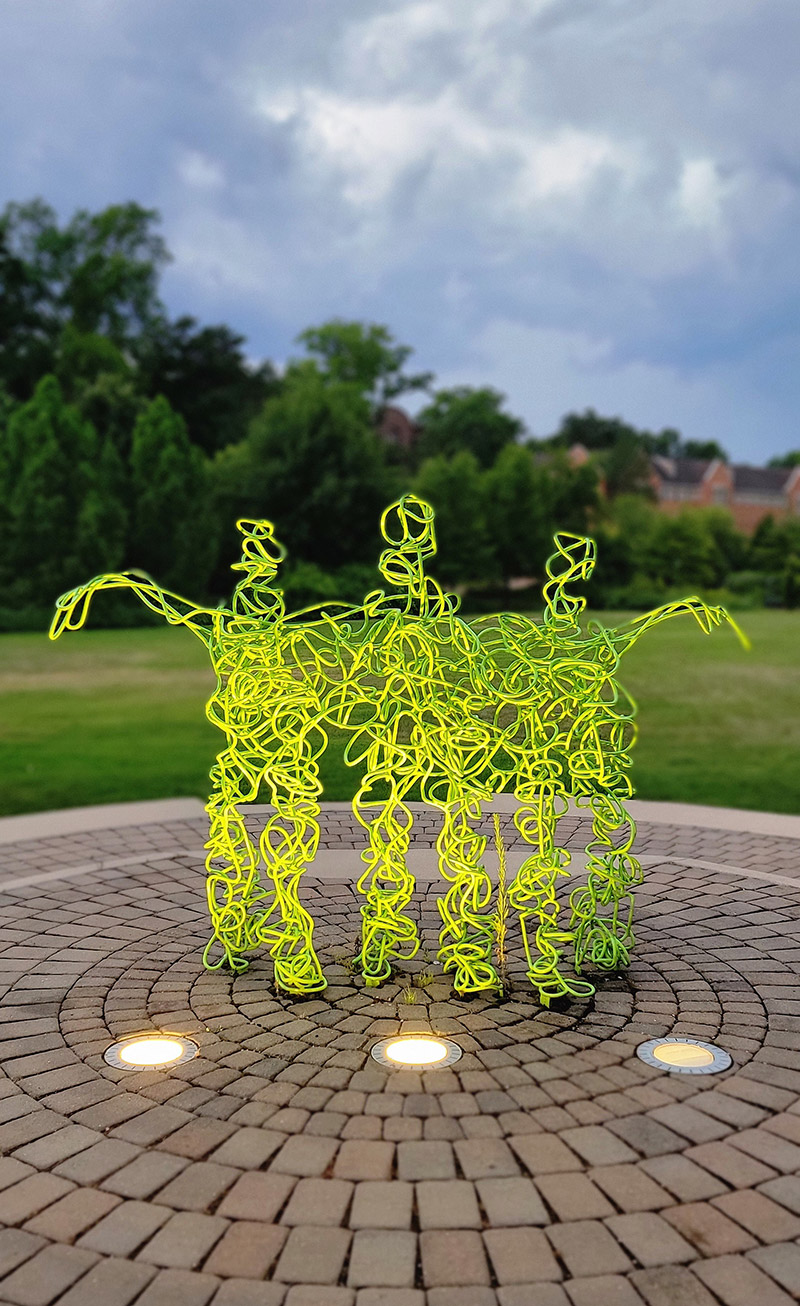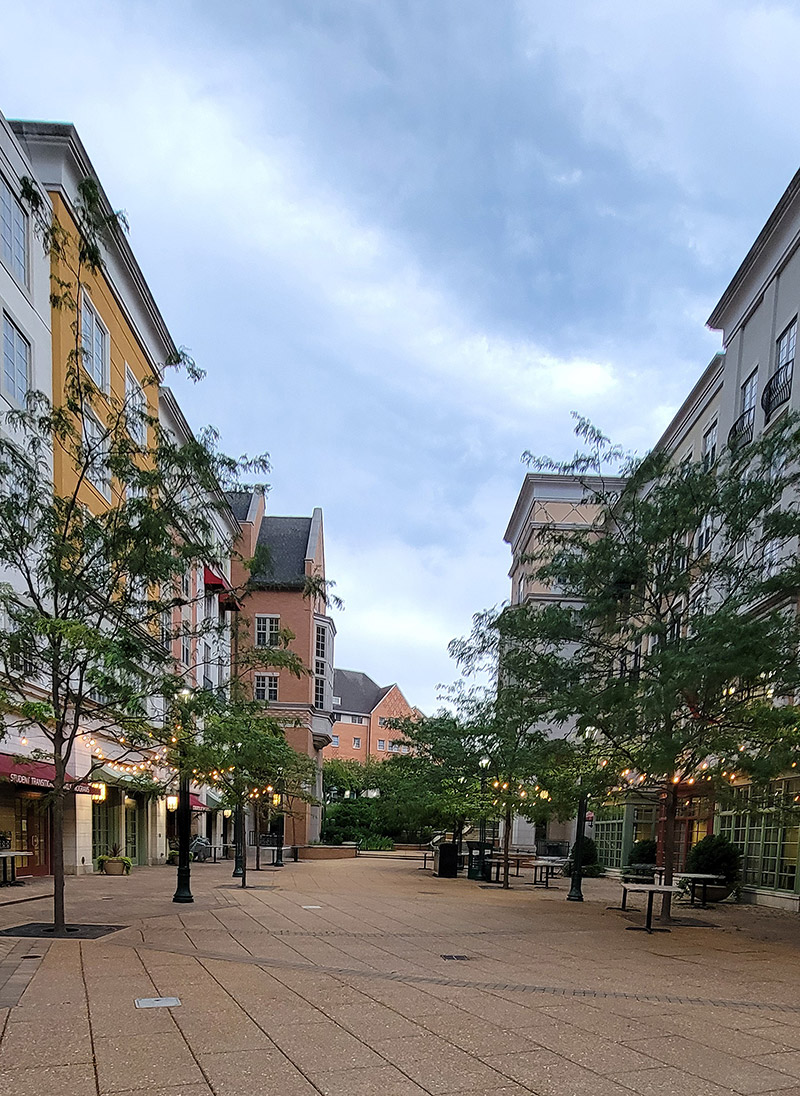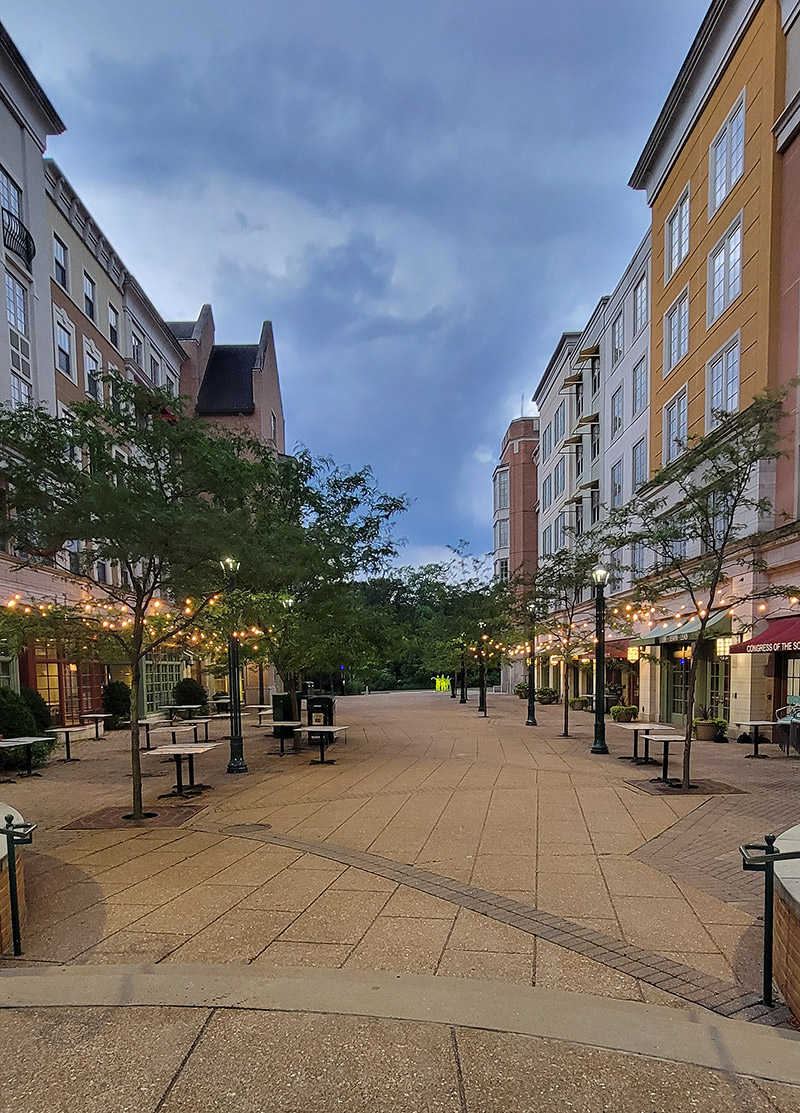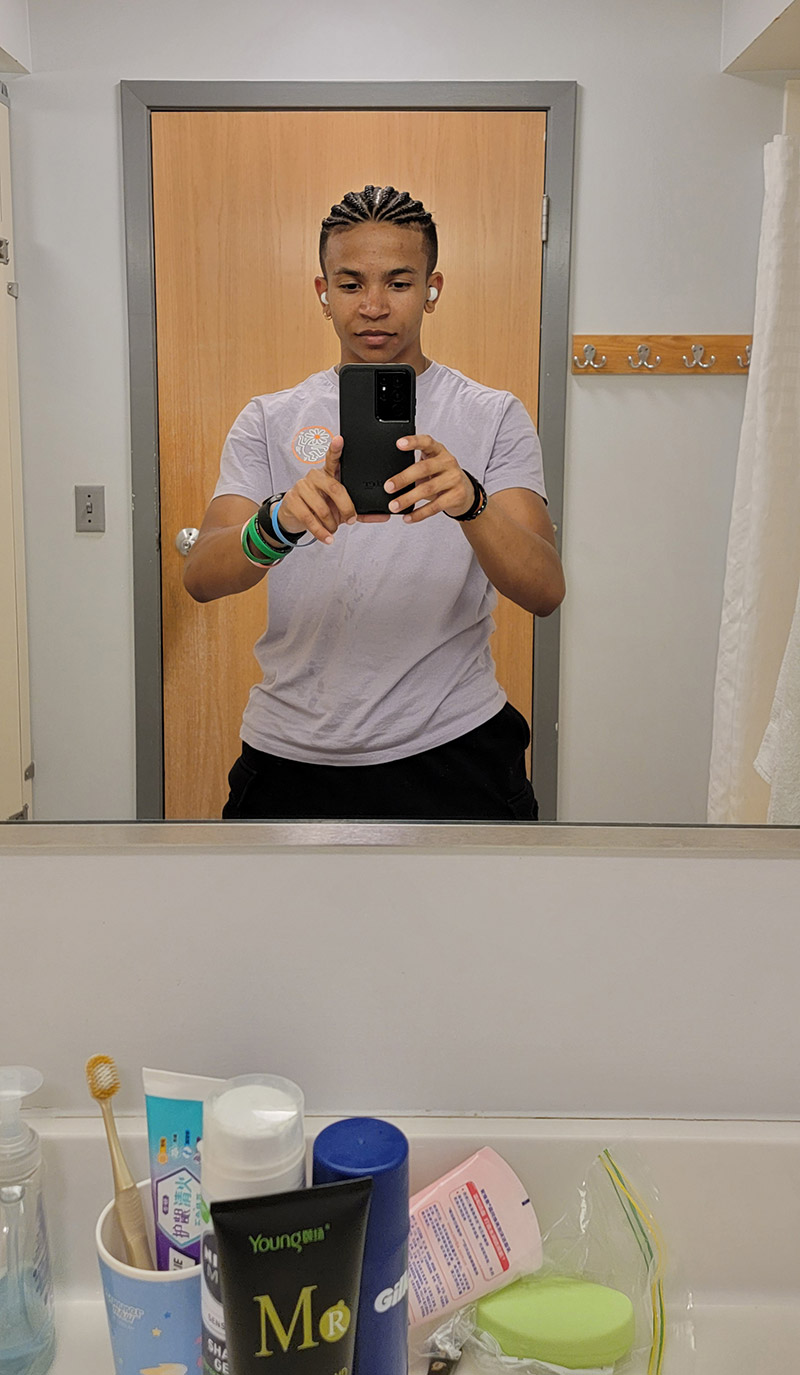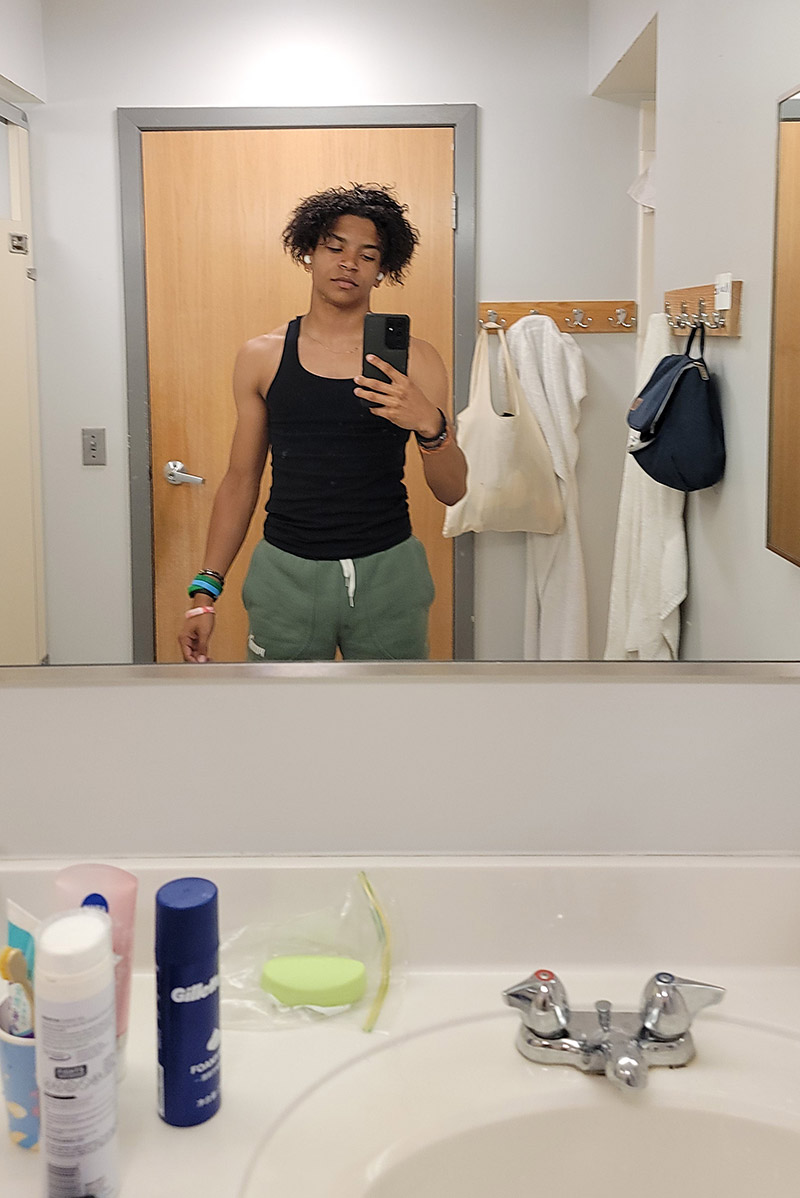Robert Wigfall reports on his experience at Washington University’s High School Summer Scholars Arts & Sciences Program, where he is studying Biomedical Ethics. His first week was spent “making meaningful connections” with his classmates, exploring the campus and surrounding areas of St. Louis.
“Throughout my first week at WashU, I’ve accumulated a multitude of experiences. Ranging from classroom discussions to extracurricular activities on campus to venturing out into the city of St. Louis, my first week at Washington University can be described with one word: eventful,” Robert says.
Robert is enjoying the closely knit and personal atmosphere of the program which includes a diverse group of about 50 students, and has been quickly making friends. “Over the past week, I’ve spoken with almost every person in the program, being able to form many enjoyable friendships. WashU does an amazing job of organizing social and “get to know you” events, an opportunity I’ve utilized to interact with my peers. For example, just outside of our residential area, there is a large area of basketball courts that anyone on campus can access. Oftentimes spontaneous pick-up basketball games are played there, as it exists as a communal area that anyone on campus can access; I have even met high school students from other programs and incoming WashU freshmen on these courts,” Robert exclaims!
“In addition to that, there are often other organized recreational activities; in the past week, there have been Board Game Nights, Movie Nights, College Preparation Seminars, and a trip to the St. Louis Zoo,” Robert adds.
“Aside from the overall aspects of the university, my Biomedical Ethics class is extremely engaging. Meeting from 11:45 AM to 12:45 PM each day, we are able to study and discuss various ethical issues and situations as they arise in the biological world,” Robert says.
“In Biomedical Ethics, students are given daily readings that cover topics further explored in class the following day. Additionally, throughout the course there will be weekly quizzes regarding reading topics and two intermediate written assignments in response to such topics that precede the completion of a final paper at the end of the program. Over the course of the first week in this course, we have discussed and reviewed the foundational concepts of moral philosophy and the principles of logic, as they serve as the groundwork for applied biomedical ethics. Furthermore, we have begun a unit on health and disease, taking it upon ourselves to place a definition to the broad terms of ‘health’ and ‘disease,'” Robert explains
“Next week, we are set to begin discussions regarding disabilities and the morality and legality of abortion and physician-assisted suicide. As we move into more concrete applications and dilemmas of bioethics, my interest has increased accordingly,” Robert adds.
Robert reports that his program is “all that I could have asked for.” Robert appreciates the more comfortable pace of a longer, 5-week program. In addition, he has been enjoying opportunities provided by the University to explore the St Louis area and its culinary delights. “There are several other amenities to enjoy on the WashU campus, one of the most notable being the food. I cannot recall taking as many pictures of my meals in my life as I have in this past week. In the middle of St. Louis, a city known for its barbeque, any expectations I would have ever had have been exceeded,” Robert adds
We are happy to hear that you are enjoying your time at Washington University, Robert. We can’t wait to hear more!
Week 2 — Getting into a routine and making friends
Robert spent his second week navigating the transportation system around Washington University, and “solidifying my rhythm and routine while venturing into domains of socialization and peer interactions.”
Robert has been fully immersed in his coursework including controversial class discussions on abortion and assisted suicide. “I don’t believe I’ve ever had enough internal dialogue and prolonged interest to fill up a room’s worth of whiteboards with my written thoughts. I don’t believe I’ve ever taken such an initiative as I have in this course. I am extremely satisfied with my Biomedical Ethics class and it has fulfilled all of my expectations up to this point,” Robert says.
“Additionally, in the academic world, I have begun my exploration course this week. WashU offers additional non-credit courses that a student can elect to take on top of their credited course. I decided to enroll in Spandex, Spangles and Stripes: Race, Gender, and the American Superhero. This course tackles issues such as racism, sexism, and other issues through the allegorical progression of comic books and superheroes,” Robert explains.
Robert says he has been learning to manage his time and responsibilities, both in class and at home. He has also spent time meeting people and participating in social activities, including a trip to the Washington University Kemper Art Museum and Top Golf.
“I’ve met and got closer to people in many environments, including playing basketball, going to the gym, eating lunch, or the scheduled Saturday Outings. I find myself hanging out with different groups of people almost every day, a certain diversity I am glad to have achieved,” Robert says.
“My second week at WashU has been incredible. I’ve built and strengthened connections, tapped into an unwavering interest in class material, and had an exorbitant amount of fun doing it, despite the challenges I’ve faced, Robert adds.
Week 3 — Chaotic!
Robert’s third week has been “all over the place.” He took a short break from his course at Washington University to fly to Orlando, Florida, to participate in the Future Business Leaders of America (FBLA) National Leadership Conference. Robert continued with his coursework, even though he was miles away in Orlando. When he returned to class, Robert submitted his first short writing assignment and received a grade of 98 percent.
“The completion of this assignment was one that I found extremely compelling and interesting. I find myself more drawn to this class than most other classes in my past. I feel the initiative to go the extra mile and learn as much as possible; I hold a genuine interest regarding bioethics,” Robert says.
“Socially, my circle has ceased growing and has begun to deepen. I find myself learning more about the people I’ve befriended. These types of connections and conversations I’ve been able to have been simply possible due to the length of the program. I likely wouldn’t have time to get as close to some people in a two-week program. I’ve gotten to learn about different parts of the US, different countries around the world, certain customs, peoples’ personal stories, and even a bit of Mandarin,” Roberts reports.
“Overall, my third week at WashU has been nothing short of chaotic – but in a good way. After taking a while to find my groove, I shortly find myself halfway across the country – perhaps this is the fluidity that is bound to accompany college life. Regardless, I think the adjustments I’ve made have preserved my ability to make the most of the opportunities that have come my way and create great memories in doing so,” Robert adds.
Week 4 — Playing catch-up.
During week four, Robert spent his time getting caught up with coursework, forming deeper bonds with his classmates, and feeling more at home at Washington University.
“Academically, most of this week has been spent playing catch-up. With all of the work I missed throughout my time at FBLA NLC, I found myself in a considerable divot when returning to campus. However, after utilizing some of the skills I’ve come to normalize throughout my stay at WashU, I find myself making up for this disparity with great efficiency,” Robert says.
“Aside from that, in the classroom, we have begun to tackle specific issues of applied biomedical ethics, such as the concept of universal healthcare and the impact that a previous history of alcoholism has on one’s ability to receive a liver transplant. Though these specific issues are not ones that have piqued my interest as much as those in the beginning of the program, I am still able to enjoy the logical structure and argumentative nature of the classroom discussions and articles,” Robert reports.
As the course entered its final week, Robert was busy working on his last assignment for the program, and attending in his virtual class.
“In this assignment, we must choose to expand upon one of our previous, shorter writing accounts or create a new account based on more recent readings. Seeing as I chose the latter, selecting Medical Paternalism as my topics, I certainly have my work cut out for me in this upcoming week,” Robert explains.
Week 5 — Chaos, stress, great laughs, and painful goodbyes
Robert reports that his last week at Washington University has been “filled with chaos, stress, great laughs, and painful goodbyes.”
“Academically, this week was like any other: rigorous and invigorating. We began this week discussing specific instances of applied ethics including pandemic ethics and genetic engineering. This included the reading and class discussion of several academic articles. Upon arriving to class, students would sit through a short lecture that summarized the past night’s readings. From this lecture, many jumping-off or conversation points were created, spurring a class-wide discussion regarding the various angles of the ethical issues at hand. Most of our classes were structured like this. In addition to our typical readings and discussion, our academic patterns of the week were eclipsed by the overwhelming importance of our final papers,” Robert says.
“For my final paper, I chose to write about Medical Paternalism—tackling the moral standing regarding whether a physician should possess the capacity to violate their patient’s autonomy on the basis that it is in the patient’s best interest. Throughout my busy week, I made time for myself to form this ethical account. Calling upon the two readings we completed regarding this topic, I traveled to Bauer Hall, what has become my favorite study location, and filled the whiteboard with my writing: opinions, summaries, and tangential avenues of thought filled the whiteboards and fueled my stay for five consecutive hours,” Robert explains.
“When I mention the “formation of an ethical account,” I hope to illustrate the dissection of an article and determination of which aspects follow and adhere to my opinion. From the formation of this account, I then condense my words to comprise and resemble a philosophical article that fits the given prompt. The act of formulating ethical accounts is probably the most academic fun that I have ever had. I enjoy the process and challenge of academic discourse and the generation of a formal opinion that obeys the rules of logic. I love being structured in my thinking and writing—it is part of the reason I chose to complete the longer assignment,” Robert adds.
Outside of class, Robert spent time forming memories with students he connected with at Washington University. They visited the Forrest Park Basketball courts, traveled to the STL City Museum, played games of beach volleyball and pickup basketball, went swimming, and hosted a karaoke night. Robert was also able to make helpful connections and receive letters of recommendations that will help him apply to Washington University for the fall semester.
“Overall, my experience at WashU has been absolutely phenomenal—being the highlight and pinnacle of my Garwin experience. I have thoroughly enjoyed the time I have spent here, the connections I have built, and the information I have learned about myself. This has truly been an unforgettable experience,” Robert says.
Great job, Robert! We are happy that you had a memorable learning experience at Washington University. We are so very proud of you!
>> Read Robert Wigfall’s final report (PDF File, 82 KB).
>> Learn about the other students’ experiences in the GFF Scholarship Program.

